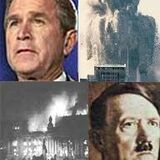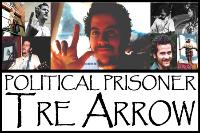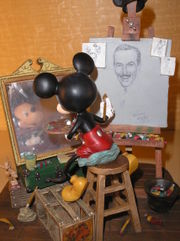Wednesday, December 26
"Inducement to Rage": Who Killed Electric-Powered Public Transporation?
 A murder mystery, a call to arms and an effective inducement to rage, Who Killed the Electric Car? is the latest and one of the more successful additions to the growing ranks of issue-oriented documentaries. --The New York Times
A murder mystery, a call to arms and an effective inducement to rage, Who Killed the Electric Car? is the latest and one of the more successful additions to the growing ranks of issue-oriented documentaries. --The New York TimesIf $3-a-gallon gasoline doesn't make you hate the big oil companies, the shocking revelations in Chris Paine's thought-provoking documentary Who Killed the Electric Car? will.-- V. A. Musetto, New York Post
George Santanya once wrote, “Those who cannot remember the past are condemned to repeat it.” An understanding of the past is critical in interpreting the present, with the hope of resolving problems in the future.--Jeffrey A. Wallace, "Ideology vs. Reality," 28 July 2003, p. 697
When the new Democrat majority on Capitol Hill convened the 110th Congress in January 2007, House and Senate leaders failed to investigate a second sensational--yet marginalized--fraud in addition to ferreting out which Bush White House officials aided Kansas GOP Senator Pat Roberts in fixing prewar intelligence that has condemned 4,000 American sons and daughters to early deaths in the U.S. petroleum industry's Big Oil War in Iraq.
The second corporate fraud conveniently "overlooked" by Dems was unfolding during the one ongoing in Iraq: GM abetting Big Oil to kill a promising alternative to carbon-based transportation at a time when global warming confronts humankind.
 During his 9 June 2006 PBS appearance, documentary filmmaker Chris Paine (right) told P.O.V. "[The film] is about why the only kind of cars that we can drive run on oil. And for a while there was a terrific alternative, a pure electric car."
During his 9 June 2006 PBS appearance, documentary filmmaker Chris Paine (right) told P.O.V. "[The film] is about why the only kind of cars that we can drive run on oil. And for a while there was a terrific alternative, a pure electric car."
PBS program notes for Paine's revealing film, produced and distributed by Sony Pictures Classics, continues:
In 1996, General Motors (G.M.) launched the first modern-day commercially available electric car, the EV1. The car required no fuel and could be plugged in for recharging at home and at a number of so-called battery parks.
Many of the people who leased the car, including a number of celebrities [including a bearded Mel Gibson before his infamous run-in with CHP last year], said the car drove like a dream.
"...the EV1 was a high performer. It could do a U-turn on a dime; it was incredibly quiet and smooth. And it was fast. I could beat any Porsche off the line at a stoplight. I loved it," Actress, Alexandra Paul told NOW.
After California regulators saw G.M.s electric car in the late 1980s, they launched a zero-emissions vehicle program in 1990 to clean up the state's smoggy skies.
But it was not to be. A little over 1,000 EV1s were produced by G.M. before the company pulled the plug on the project in 2002 due to [as Paine shows in the film, GM's fraudulent definition for] insufficient demand. Other major car makers also ceased production of their electric vehicles.
In the wake of a legal challenge from G.M. and DaimlerChrysler, California amended its regulations and abandoned its goals. Shortly thereafter, automakers began reclaiming and dismantling their electrics as they came off lease.
Some suggest that G.M. -- which says it invested some $1 billion in the EV1 -- never really wanted the cars to take off. They say G.M. intentionally sabotaged their own marketing efforts because they feared the car would cannibalize its existing business. G.M. disputes these claims....
 Remarkably, GM never sold any EV1's to the American public, offering cars only to California and Arizona residents through fixed-term leases. After misrepresenting the "lack of consumer demand" (a point Paine develops) while saying the car was too expensive to manufacture, GM canceled its six-year program in 2003--the year of the US-led invasion of Iraq for the world's third-largest oil reserves--and crushed its entire fleet of 1200 electric cars in the Arizona desert.
Remarkably, GM never sold any EV1's to the American public, offering cars only to California and Arizona residents through fixed-term leases. After misrepresenting the "lack of consumer demand" (a point Paine develops) while saying the car was too expensive to manufacture, GM canceled its six-year program in 2003--the year of the US-led invasion of Iraq for the world's third-largest oil reserves--and crushed its entire fleet of 1200 electric cars in the Arizona desert.Leave it to the business-minded in Corporate Amerika to erase all evidence of how close we came to scaling about the transportation component of America's #1 ranking in carbon emissions. (1)
On Sony Picture's release of Paine's documentary in the summer of 2006, Jon Stewart, host of Comedy Central's Daily Show, interviewed the filmmaker on 2 August (5 minutes, 46 seconds).
GM First Sabotages Electric-Based Public Transit in 1950s
Not that he needed it, but Paine could have added additional gravitas to his subperb documentary by rehashing GM's post-World War II suppression of trolley transit in 100 U.S. cities, a criminal conspiracy remembered as the "Great American Streetcar Scandal."
Ironically, PBS aired in August 1996--four months before GM initiated its electric car program--the 55-minute documentary Taken for a Ride by Jim Klein and Martha Olson; the film assesses the car manufacturing giant's role, abetted by confederates, to thwart city governments from pursuing electric-powered public transportation.
The following excerpt below from the film's opening appeared in Auto-Free Times magazine (which morphed into the now-defunct Culture Change), a project of the Arcata, California-based Sustainable Energy Institute:
This is a story about how things got the way they are. Why sitting in traffic seems natural. Why our public transportation is the worst in the industrialized world. And why superhighways cut right through the hearts of our cities.Let's remember that by the 1950s, the U.S. Justice Department had not yet been gutted and colonized by an imperialist White House to coddle corporate criminals; so DoJ was still looking out for the public welfare. (How times have changed, no?) Government prosecutors went after GM, its front company National City Lines, and other conspirators (the steel and oil industries) in seeking prosecution for conspiracy criminal fraud.
Narrator: When you're talking about public transportation in America, for the first part of this century, you're talking about streetcars. Trolleys ran on most major avenues every few minutes. Steel track and quiet electric motors made the ride smooth and clean and comfortable. The center of the road was reserved for streetcars, and the new automobiles had to move out of the way.
Bradford Snell, who has made a career researching the auto industry for 16 years: In 1922, only one American in ten owned an automobile. (Everyone else used rail.) At that time Alfred P. Sloan (President, General Motors) said, 'Wait a minute, this is a great opportunity. We've got 90 percent of the market out there that we can somehow turn into automobile users. If we can eliminate the rail alternatives, we will create a new market for our cars. And if we don't, then General Motors' sales are just going to remain level.'
They had to get rid of the streetcars. They wanted the space that the streetcars used for automobiles. They had to find something they could put in place of the streetcar. Sloan had the idea that he wanted to somehow motorize all the major cities in the country. That meant replacing all the street railways with buses—ultimately thinking that no one would want to ride the buses and therefore they would buy General Motors automobiles.
Sloan wanted to get in very big in this field. What he bought was phenomenal: the largest bus-operating company in the country and the largest bus-production company. And using that as a foothold, GM moved into Manhattan. They acquired interests in the New York railways and between 1926 and '36 they methodically destroyed the rails.
Snell: The key lawyers involved in the case told me there was not a scintilla of doubt that these defendants, General Motors and the others, had set out to destroy the streetcar system.
But since there was no antitrust law on the books at that point saying, `Thou shalt not destroy streetcar systems,' the best way, the only way they could get them on a violation was to proceed along the criminal antitrust, conspiracy route. And that's what they did.
Narrator: The government's case was straight forward. National City Lines, General Motors and the other defendants were found guilty of conspiracy to monopolize the local transportation field.
Snell: These companies, that had probably eliminated systems that in order to reconstitute today would require maybe $300 billion, these companies were individually fined $5,000....read more
 Accompanying the magazine's excerpt is a picture from Klein and Olson's documentary, one eerily reminiscent from Paine's film (above) showing electric cars stacked like cord wood in the Arizona desert.
Accompanying the magazine's excerpt is a picture from Klein and Olson's documentary, one eerily reminiscent from Paine's film (above) showing electric cars stacked like cord wood in the Arizona desert.Please don't bother sending your Democratic House or Senate member any news of Corporate Amerika's ongoing public transportation scandal; it'll only bring up cheap, tawdry feelings of wholesale whoredom.
Our Capitol Hill charlatans assuaged their sad sense of themselves in 2007--the first of their 110th Congress' initial session--by going shopping for the single season record of porkish self-serving earmarks, many tied to Iraq War funding they pledged to end during their 2006 congressional campaign cycles.
A final note for the last patriot immigrating from George Bush's new, improved Amerika: Be sure to turn off the lights when you leave.
Related information: EV1.org; EV1 video log; UK Video Update: "EV1 Rides Again"
===
Notes:
1. Deceased energy consumption from ecological catastrophe: See the excerpt below from this 19 September 2007 Environstats entry:
Carbon dioxide emissions in the United States and its Territories were 6,008.6 million metric tons (MMT) in 2005, 19.9 MMT (0.3 percent) more than in 2004 (Table 5). The slow growth in emissions from 2004 to 2005 can be attributed mainly to higher energy prices that suppressed demand, low or negative growth in several energy-intensive industries, and weather-related disruptions in the energy infrastructure along the Gulf Coast. As a result, while the economy grew by 3.2 percent, energy consumption fell by 0.3 percent. The 0.3-percent growth in total U.S. carbon dioxide emissions from 2004 to 2005 followed an increase of 1.9 percent, or 113.4 MMT, from 2003 to 2004 (Figure 1). Since 1990, total U.S. carbon dioxide emissions have increased by an average of about 1.2 percent per year. [emphasis added]











